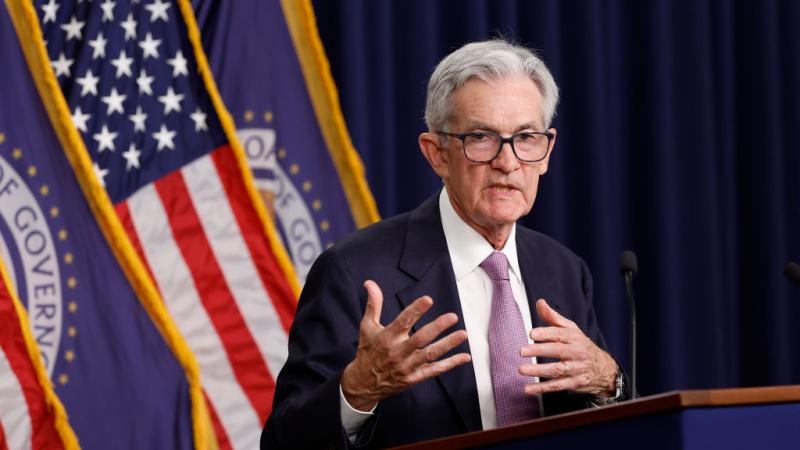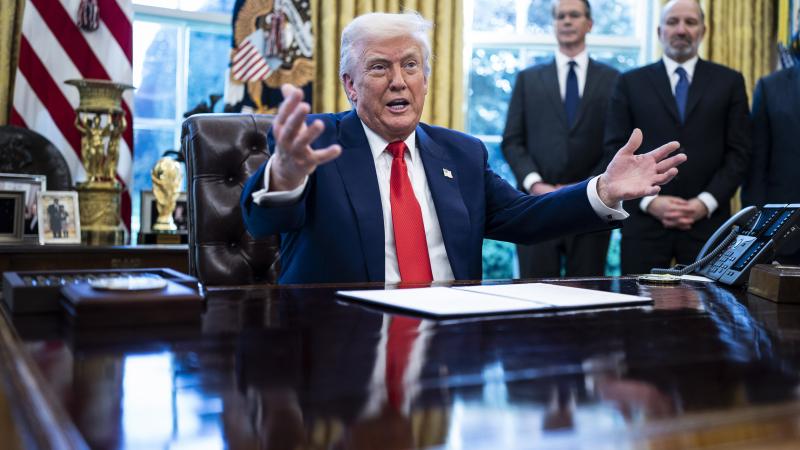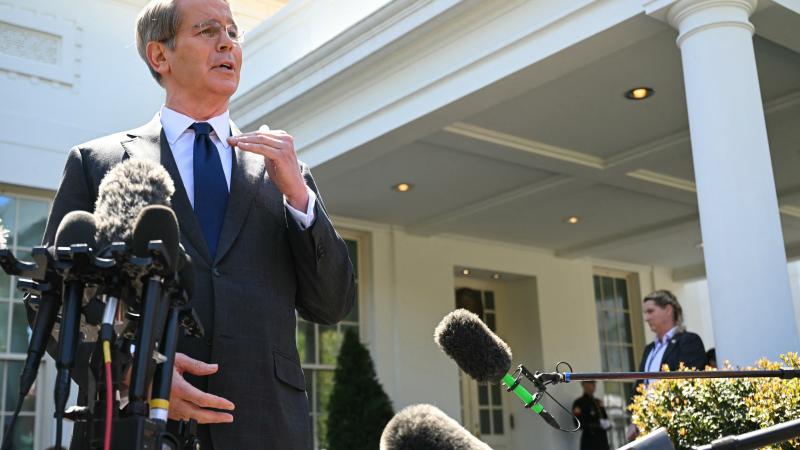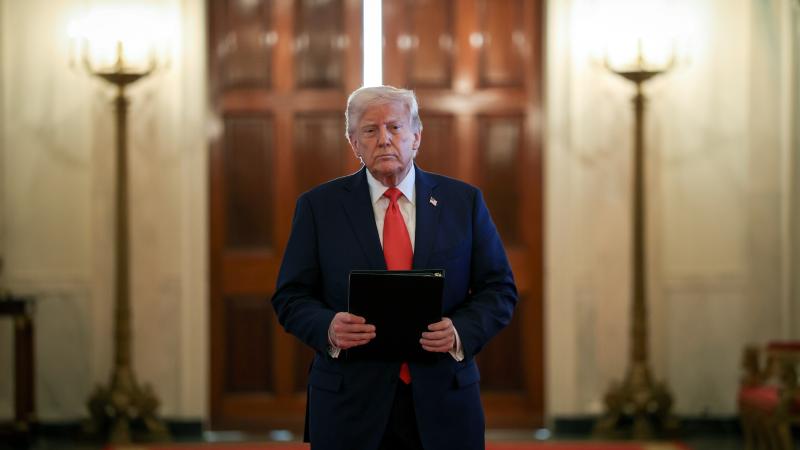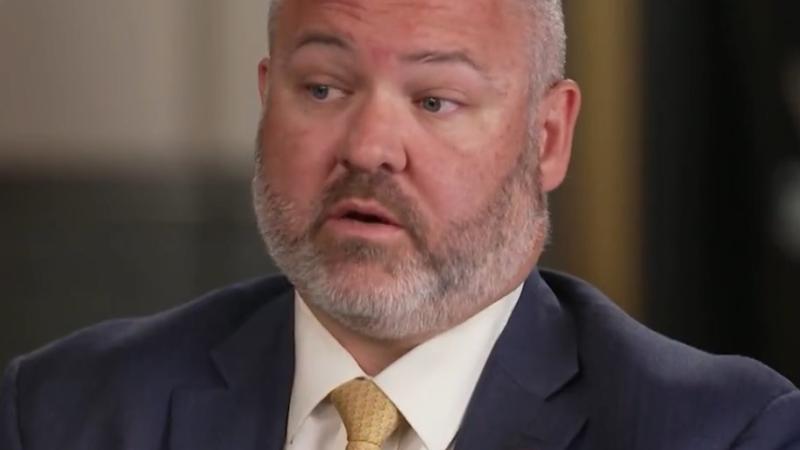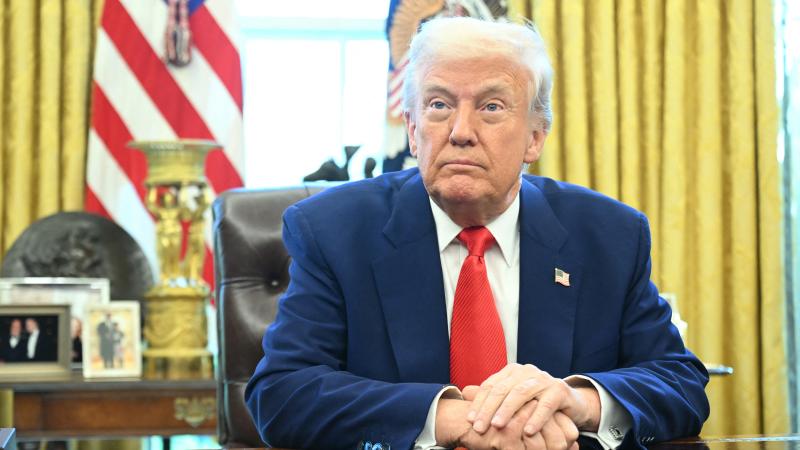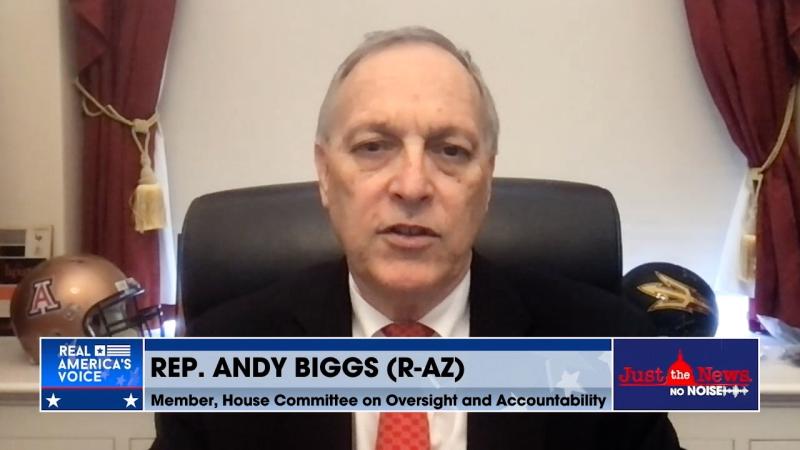Trump is nearly undefeated at the Supreme Court
While the top bench has yet to formally address the legal viability of nationwide injunctions in detail, it has handed the administration a number of wins on immigration cases, the Department of Government Efficiency’s (DOGE) access to documents, and the firing of federal employees.
Despite the Trump administration’s repeated lamentations over left-aligned federal court judges blocking its executive orders and efforts to shrink the bureaucracy, the Supreme Court has almost routinely allowed his orders to take effect and rebuked those lower court judges for exceeding their authority.
While the top bench has yet to formally address the matter of nationwide injunctions on its own, it has handed the administration a number of wins on a wide range of issues, including immigration cases; the Department of Government Efficiency’s (DOGE) access to documents; and the firing of federal employees.
Lower court judges attracted the ire of MAGA-aligned lawmakers and White House staffers amid a string of injunctions and prompted legislative efforts to rein in their authority. The House of Representatives last week passed the “No Rogue Rulings Act” in a 218-214 vote.
Congress has the authority to establish jurisdictional limits under Article III, Section 2, Clause 1 of the U.S. Constitution, which defines the types of "cases and controversies" for which federal courts have jurisdiction. In this case, the legislation would bar judges from issuing injunctions, save for an "order providing for injunctive relief, except in the case of such an order that is applicable only to limit the actions of a party to the case before such district court with respect to the party seeking injunctive relief from such district court."
In Supreme Court filings, Acting Solicitor General Sarah Harris noted that "District courts have issued more universal injunctions and TROs during February 2025 alone than through the first three years of the Biden Administration. That sharp rise in universal injunctions stops the Executive Branch from performing its constitutional functions before any courts fully examine the merits of those actions, and threatens to swamp this Court’s emergency docket."
The legislation is expected to face an uphill battle in the Senate, which has a different vision for addressing the issue. But with many of the most high-profile orders nullified, the push for reform may waver.
Kilmar Abrego Garcia’s deportation
Though widely reported as a loss for the administration, the Supreme Court’s recent 9-0 ruling on the matter of illegal alien Kilmar Abrego Garcia to his home country of El Salvador strongly rebuked the lower court judge who ordered his return to the U.S. and a stay from Chief Justice John Roberts has afforded the administration time to stave off a contempt of court finding.
Abrego Garcia was subject to a 2019 withholding order forbidding his deportation due to concerns the government of El Salvador would not protect him. He was nonetheless removed to his home country through what the administration called an “administrative error.” Washington has alleged he is a member of the MS-13 gang, which he denies. The U.S. District Court for Maryland ordered the government to “facilitate and effectuate” his return by April 7.
Much of the reporting on the case has been inaccurate or incomplete. In fact, the Supreme Court stayed the deadline and added that while the lower court could tell the Trump administration to “facilitate” his return, “[t]he intended scope of the term ‘effectuate’ in the District Court’s order is, however, unclear, and may exceed the District Court’s authority.”
For the time being, Abrego Garcia will remain in El Salvadoran custody as President Nayib Bukele has declined to release him. U.S. District Judge Paula Xinis, however, has demanded the U.S. provide documentation of its efforts to return Abrego Garcia. The U.S. government — including the Judicial Branch — has no authority to demand that the government of El Salvador return Garcia.
The Alien Enemies Act
Among the most high-profile immigration actions that Trump has taken since returning to office is his invocation of the 1798 Alien Enemies Act to speedily deport members of the Venezuelan gang Tren de Aragua. That gang was declared a "terrorist organization" by President Trump on his first day in office.
U.S. District Judge James Boasberg issued a March 15 order to block deportations made under the law. But the Supreme Court ruled 5-4 to overturn the stay. Widely unreported was the Supreme Court's finding that Boasberg’s Washington, D.C., court was an inappropriate venue for the case, given the aliens subject to removal were confined in Texas.
“Regardless of whether the detainees formally request release from confinement, because their claims for relief 'necessarily imply the invalidity’ of their confinement and removal under the AEA, their claims fall within the ‘core’ of the writ of habeas corpus and thus must be brought in habeas,” they wrote, confirming that the deportees had the right to challenge their removal.
But the reversal of Boasberg's order and the relocation of the case to Texas, a venue far more favorable to the administration, served as a rebuke of both the judicial injunction and the venue shopping practice that has seen opponents secure judicial stays from favorable judges with questionable jurisdiction.
Boasberg fired back on Wednesday with a determination that there was “probable cause” to find the administration in contempt of court, though it remains unclear how such a determination will move forward after the Supreme Court found his venue inappropriate.
Boasberg himself became the focus of ethical questions after Just The News reported that a Republican member of Congress and a Harvard professor called for a ban on special interest judicial junkets following Just the News revealing that Judge Boasberg attended a privately-funded conference with an anti-Trump organization last year.
Mass firing of federal workers allowed by SCOTUS
As part of DOGE’s efforts to dramatically shrink the size of the federal government, the administration fired thousands of probationary employees within the first few months. Judge William Alsup, however, found that myriad federal departments had unlawfully fired employees from the Departments of Agriculture, Defense, Energy, Interior, Treasury and Veterans Affairs, and ordered that they be reinstated.
A panel of the 9th Circuit, moreover, upheld Alsup’s ruling and the government filed an emergency appeal to the Supreme Court. The top bench immediately blocked the order and allowed the administration to remove the roughly 16,000 employees by placing them on administrative leave.
Labor board firings
Last week, Chief Justice John Roberts handed Trump a temporary win by permitting him to remove former National Labor Relations Board member Gwynne Wilcox and former Merit Systems Protection Board member Cathy Harris amid legal challenges.
Roberts’s move overturned a federal appeals court decision that found Trump lacked the authority to fire members of adjudicatory boards. Both Wilcox and Harris were Biden appointees.
Both board members had until April 15 to respond to the administration’s arguments, though Roberts has yet to issue a permanent decision.
USAID funds
Trump met a notable defeat on the matter of freezing funds from the United States Agency for International Development (USAID). The court ruled 5-4 to require the administration to distribute billions in frozen funds, much to the shock of conservative justices. Roberts and Associate Justice Amy Coney Barrett sided with the court’s liberals in issuing the order.
"Does a single district-court judge who likely lacks jurisdiction have the unchecked power to compel the Government of the United States to pay out (and probably lose forever) 2 billion taxpayer dollars?” Associate Justice Samuel Alito wrote in dissent. “The answer to that question should be an emphatic 'No,' but a majority of this Court apparently thinks otherwise. I am stunned.”
Lower courts
The administration has also secured wins at lower levels to advance its administrative goals. Last Friday, Judge Jeannette A. Vargas relaxed her own previous order to permit DOGE employee Ryan Wunderly to access sensitive payment data from the Treasury Department if he went through the same training that department employees do for handling such data.
Nineteen Democratic state attorneys general have sued to stop DOGE from accessing Treasury payment systems over privacy concerns. DOGE has thus far saved an estimated $150 billion, but is well shy of its $2 trillion goal. That case was far from the only legal challenge to DOGE’s access, however, and in February, U.S. District Judge Paul Engelmayer issued a similar block.
Reacting to that decision, Musk identified the need to review payment systems as ranking among the most vital for him to address government spending. "How on Earth are we supposed to stop fraud and waste of taxpayer money without looking at how money is spent? That’s literally impossible! Something super shady is going to protect scammers," Musk wrote at the time.
The matter could ultimately reach the Supreme Court, but for the time being, it appears DOGE will be able to secure access to Treasury Department payment data.
The Facts Inside Our Reporter's Notebook
Links
- No Rogue Rulings Act
- U.S. Constitution
- different vision
- Supreme Courtâs recent 9-0 ruling
- Nayib Bukele
- demanded the U.S. provide documentation
- 1798 Alien Enemies Act
- terrorist organization
- ruled 5-4
- fired back
- blocked the order
- John Roberts handed Trump a temporary win
- ruled 5-4
- Samuel Alito wrote
- Jeannette A. Vargas
- Musk wrote

